
Playing With People’s Nerves
As the new Iranian year (starting from March 21) begins, Iranian people are struggling to meet their basic needs including purchasing fruits, meat, chicken, etc. They have to stand in long lines to buy these items, which is very dangerous given that coronavirus has spread all over the country. The editorial of Aftab Yazd is addressed to Iranian officials and managers asking to hold them accountable in this regard.
Some remarks by officials infuriate people. If someone puts together the statements made by senior officials and undertakes a collective analysis, he will see the distressing chaos that exists in the country. Let’s forget about meat and fruit and just focus on chicken.
Some senior officials and managers talk as if they live on distant islands. What the president has promised with regard to chicken hasn’t come true – as if our lives are too short to see if that ever happens.
It is said that the Ministry of Trade has no minister. Apparently, a few years ago, the Ministry of Industries, Mine and Trade was merged with the Ministry of Commerce. Each ministry was put under the supervision of a deputy; a measure which had an adverse effect.
Four months ago, in a directive, it was announced that exporting chicken was banned. Why hasn’t the directive been implemented? Who has exported chicken and how much? How much chicken has been exported during the last six months? What has happened to it? Why should people spend their precious time in long dangerous lines for buying chicken? It is under these conditions that coronavirus has spread all over the country, why are officials playing with people’s nerves?
Concerns Over Expecting Higher Inflation
The editorial of Tejarat underscores the failure of the Iranian government in providing for the people, saying that expecting the rate of inflation to go up is tormenting Iranians.
When people vote for someone to run the country, they expect the challenges to end and the country to move towards stability and peace. That is why people have always gone to the ballot boxes. When Iranians voted for Hassan Rouhani in 2013, they were fed up with economic crises. They haven’t forgotten how the prices of different goods had inflated during former President Mahmoud Ahmadinejad’s tenure.
Tired of inflation and skyrocketing prices, people decided to vote for Rouhani who slammed any decision made by Ahmadinejad and talked as if he could resolve all the country’s issues in his first 100 days. But now that we are in the last year of Rouhani’s presidency, we see more and more skyrocketing inflation.
Due to mismanagement, people’s tables have shrunk, and they took to the streets to protest against their conditions and endangered the country’s security. As we get closer to the end of Rouhani’s second term, he should defend his performance, even though the critics say his performance over the past years is largely indefensible.
In these years, Rouhani’s rhetoric hasn’t been different from other presidents. Like others, he kept saying, “we want to work, but they don’t allow us” – an excuse used by other presidents, but none of them talked to the people transparently in this regard.
Now that the new Iranian year is beginning, there is no good prospects for the people, rather the specter of rising inflation is tormenting them. All these years, people have wrestled with all sorts of hardships and difficulties. Now the question for officials is: how much longer should people struggle before they see the light of peace and welfare? How much longer should they stand in long lines to buy some cooking oil or a chicken? How much longer should people live under the poverty line?
Iran’s officials must address these issues transparently.

Khamenei on the Nuclear Deal: We Are in No Rush
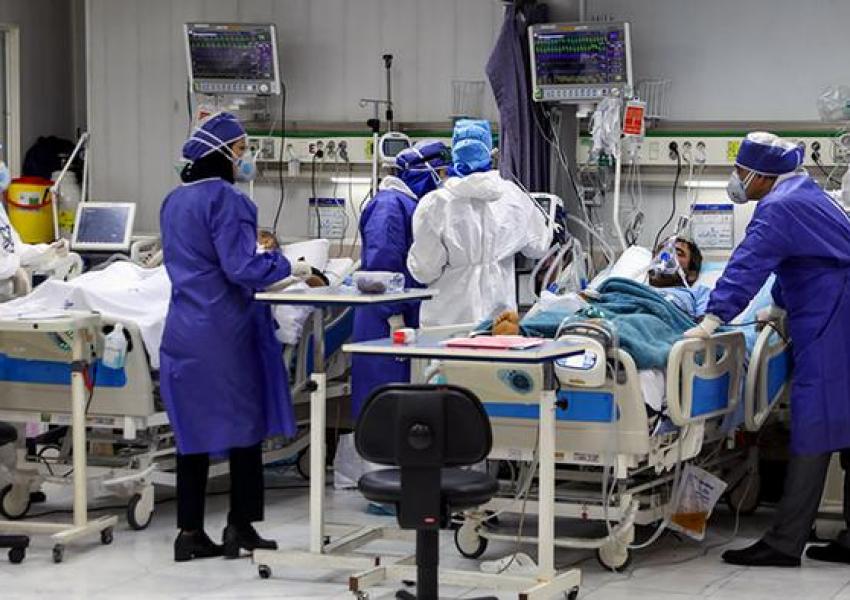
Iranian Supreme Leader Ali Khamenei, in his speech on the occasion of the Iranian new year (March 21), said with regard to the nuclear deal with the world powers (JCPOA) that Iran shouldn’t act hastily as it might result in losing opportunities. He urged that in the JCPOA, Iran made a mistake and acted hastily.
While Khamenei made these remarks, some Iranian officials have underscored that the government is trying to end US sanctions by the end of Rouhani’s government. The presidential election in Iran will be held in June. Recently, Iranian Foreign Minister Mohammad Javad Zarif had said that Joe Biden’s administration must act swiftly to revive the JCPOA, or else with the upcoming presidential election, nothing particular will take place by the end of the year. Iranian President Hassan Rouhani had also underscored that creating obstacles for lifting sanctions is a “big treason against the Iranian nation and history.”
Iran and America are both expecting the other side to take the first step in resuming negotiations and the JCPOA. Iran’s condition for returning to the full implementation of its obligations under the JCPOA is that the United States must lift its unilateral sanctions. The United States’ condition for lifting sanctions is that Tehran must fully return to its obligations under the JCPOA and stop its 20 percent uranium enrichment.
In his speech, Khamenei also addressed issues relating to the economy, the election, foreign policy and using cyberspace.
The supreme leader emphasized that Iranian officials must not tie the country’s economy to lifting sanctions. Khamenei asserted that America must lift sanctions, Iran will verify that, and then it will return to its JCPOA obligations.
Khamenei also harshly criticized the management of cyberspace in Iran, urging that “despite my emphasis, the necessary issues are not observed in our country’s cyberspace.” He asserted: “there is no pride in saying that our country’s cyberspace is free, and it must be managed.”
Former President Khatami: All Iranian Officials Should Apologize to the People
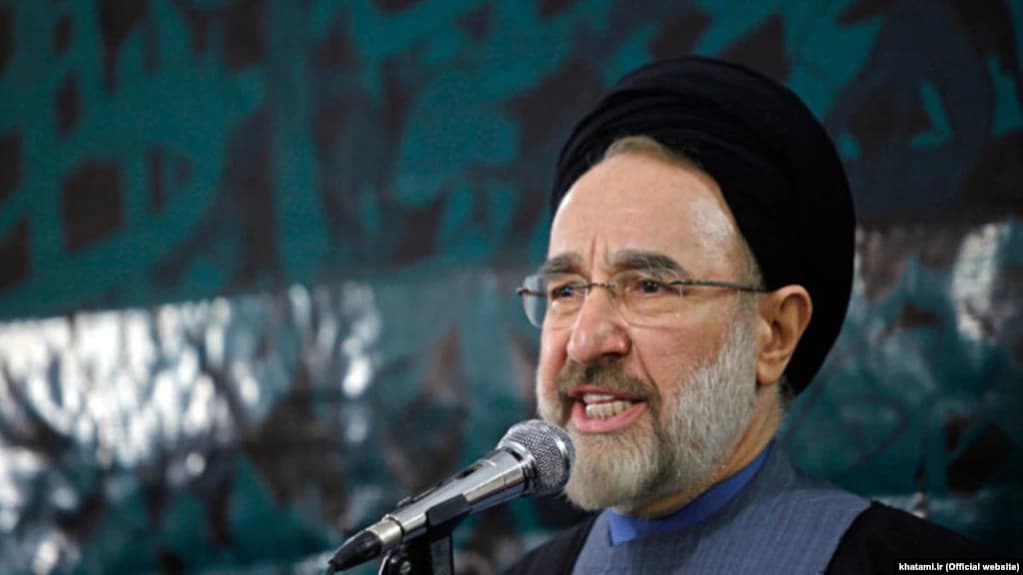
On the verge of Iran’s presidential election, former President Mohammad Khatami has once again entered the political scene by saying all Iranian government officials should apologize to the people for the problems they have created for them:
“All, including those who are in power or those who are not, as well as those who have a great deal of power and authority but do not have any accountability or do not feel any responsibility must apologize to this nation.”
In a video message published on the occasion of the Iranian new year, Khatami noted that changing current policies is the only “true apology” expected from officials.
“I, in turn, sincerely apologize to the Iranian people for deficiencies and shortcomings in my work and what I should or could have done but did not do – although I am no longer in power now,” noted Khatami. He, however, did not spell out which shortcomings he was apologizing for.
This 77-year-old politician also urged officials to provide freedoms and justice for all Iranians, saying Iran’s establishment can make that happen by holding a “free and inclusive election,” without describing if this is possible with the presence of the supreme leader, approbatory supervision and under the current Iranian Constitution.
Khatami had also written a 37-page letter to Iran Supreme Leader Ali Khamenei a few months ago, asking him to act as a father to all political factions and offer advice to “reformists”, adding that they are faithful to the political system.
Mohammad Khatami, known as the father of the reform movement in Iran, uttered those statements despite the fact that people in their protest assemblies in recent years have targeted the entire Iranian political system with their subversive slogans – one of which was: “Reformists! Principlists! The game is over [for you]!”
Rapid Surge of Coronavirus in Iran After Government Refusal to Quarantine Cities
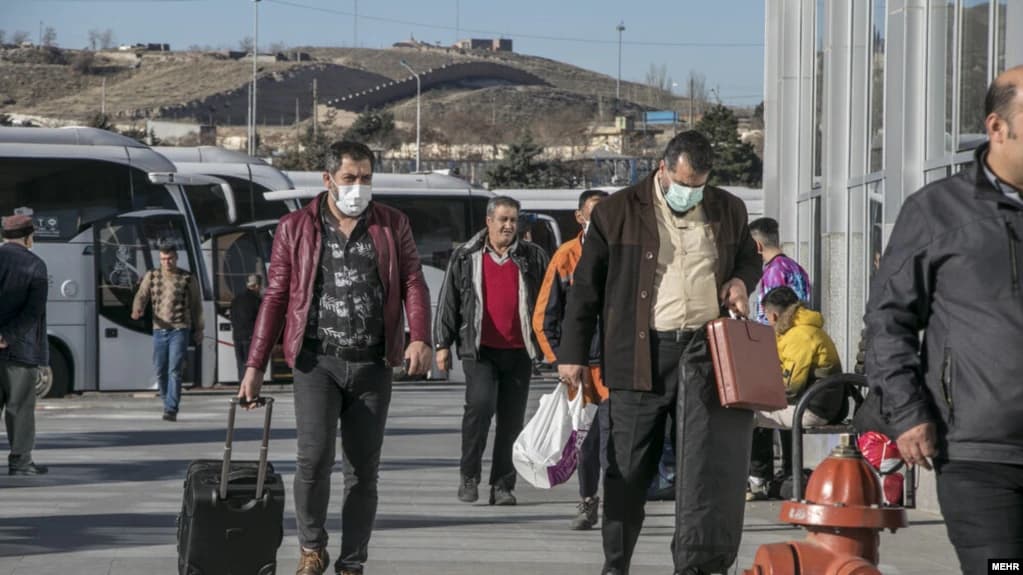
Iran’s National Coronavirus Headquarters has issued a warning about an increase in the number of hospitalizations of coronavirus patients, saying six provinces are turning into COVID-19 hotspots.
The headquarters’ spokesman, Ali Reza Raisi, said hospitalizations in West Azerbaijan province are on the rise and Urmia might become a red city in the upcoming days. He added that cities in Esfahan province, including Khansar, Golpayegan and Kashan are suffering the same conditions. Referring to southern cities and provinces, such as Khuzestan, Bushehr and Ilam, Raisi noted: “We are witnessing a gradual increase in hospitalizations.”
Meanwhile, the government’s refusal to ban domestic trips during the new year holidays has resulted in a new surge of COVID-19 in the country. The number of road trips has overwhelmingly mounted during these days. Chief of traffic police in Mazandaran province, Ali Reza Ghadami, said this week that there has been a 70 percent rise in traffic on the roads leading to this province compared to the same time last year.
Moreover, Deputy Health Minister Iraj Harirchi has raised the alarm about the circulation of a new coronavirus variant in the country, saying the number of cities which are in the red and orange zones is currently 51.
According to Iran’s official statistics, the number of people who have contracted coronavirus in this country is more than 1.8 million and 62,000 people have lost their lives due to it. This tally, however, has not been confirmed by some institutions in Iran.
Prisoners Protest Against Inhumane Conditions, Launch Hunger Strike in Different Prisons
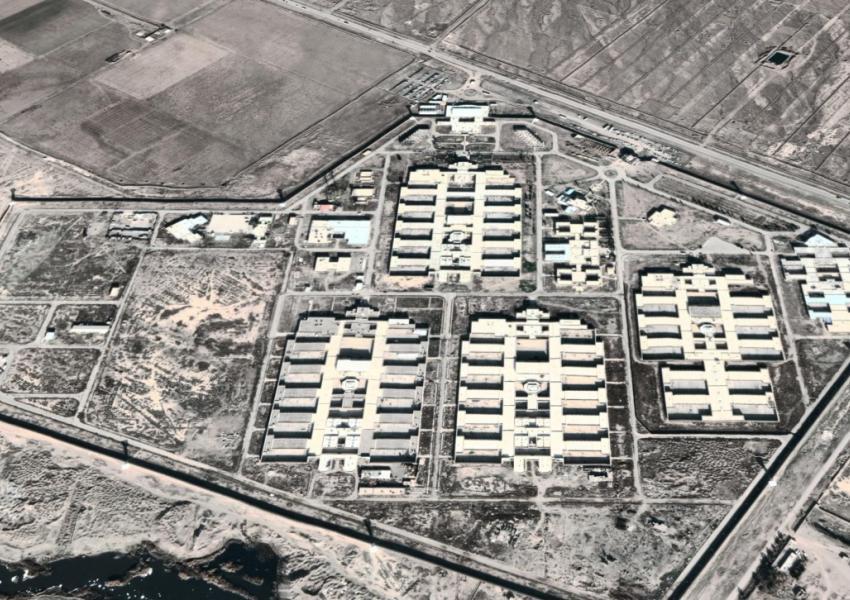
A number of political prisoners in a prison in Tehran’s suburbs have written an open letter in protest to the increasing persecution they face. At the same time, a number of prisoners launched a three-day hunger strike in solidarity. To date, 34 prisoners in different Iranian cities have joined the hunger strike. Meanwhile, a number of social media users launched a Twitter storm using the hashtag “prisoners strike,” criticizing the persecution of prisoners and supporting their strikes in different jails.
In their letter, 18 political prisoners at Rajaee Shahr prison in the city of Karaj voiced their protest against being sent to exile as well as the fabrication of new cases against them. The letter negates what Iran top judicial authorities claim regarding the observance of political prisoners’ rights and states that their conditions have become even more inhumane recently.
According to this letter, the transfer of prisoners to solitary cells, insulting, humiliating and beating them up, opening new judicial cases and issuing new sentences against them as well as persecuting their families are among the measures taken by officials – which have increased in recent months. These prisoners also believe that such harsh treatment merely aims at “intimidating and subduing” the fed-up Iranian people and political activists in society by showing them that they will pay a high price if incarcerated.
The letter continues: “The Iranian government’s resort to suppressive policies has never managed to be successful so far and it won’t work this time either; such policies are already doomed to failure.” The prisoners further state, “This only shows the regime’s fear from our justice seeking voices,” and that “It is also the result of the political, economic and social impasse in which they themselves are entangled.”
Inflation Rate Beyond IMF’s Prediction
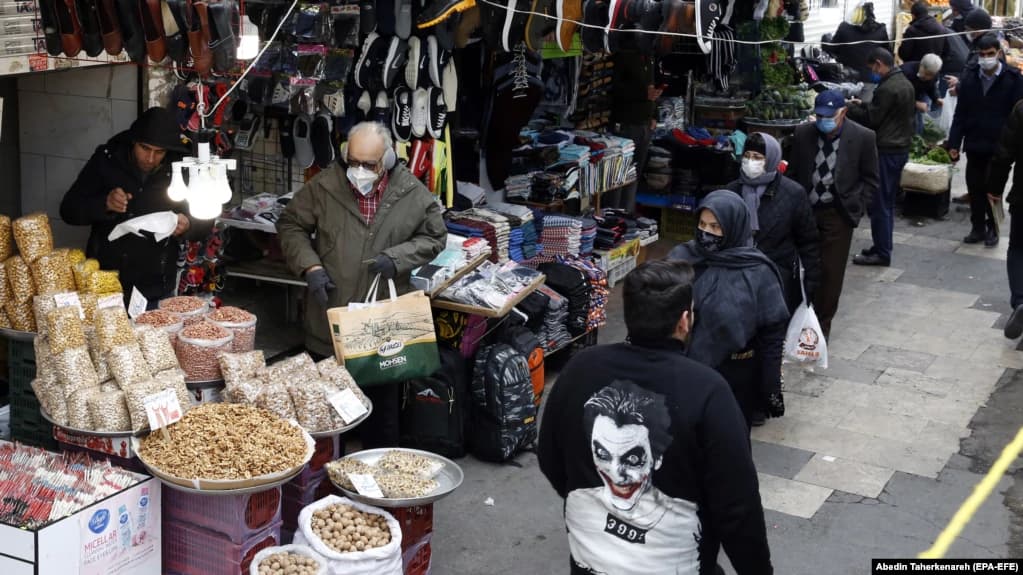
At the start of the Iranian new year on March 21, the Statistical Center of Iran issued a report saying that during past the 12 months, the inflation rate has reached 36.4 percent compared to the same period last year.
This is more than what the International Monetary Fund (IMF) had predicted about the inflation rate in Iran. The IMF had said in October 2020 that the inflation rate in Iran would be about 30.5 percent, which would be the highest in the world after Venezuela, Sudan, Yemen and Suriname.
According to the Statistical Center of Iran’s report, the point-by-point inflation rate in Iran was roughly 48.7 percent last month (compared to the same period last year). This means that Iranian households have expended, on average, almost 50 percent more on their basic needs compared to the same month last year.
The Statistical Center has reported that in the category of foods, drinks and tobacco, the highest increase in prices has been in red meat and chicken meat. The price of chicken meat per kilogram has increased from 12,500 tomans last year to 22,000 tomans this year.
25 Percent Drop in Iran-Africa Trade; 1 Million Job Losses
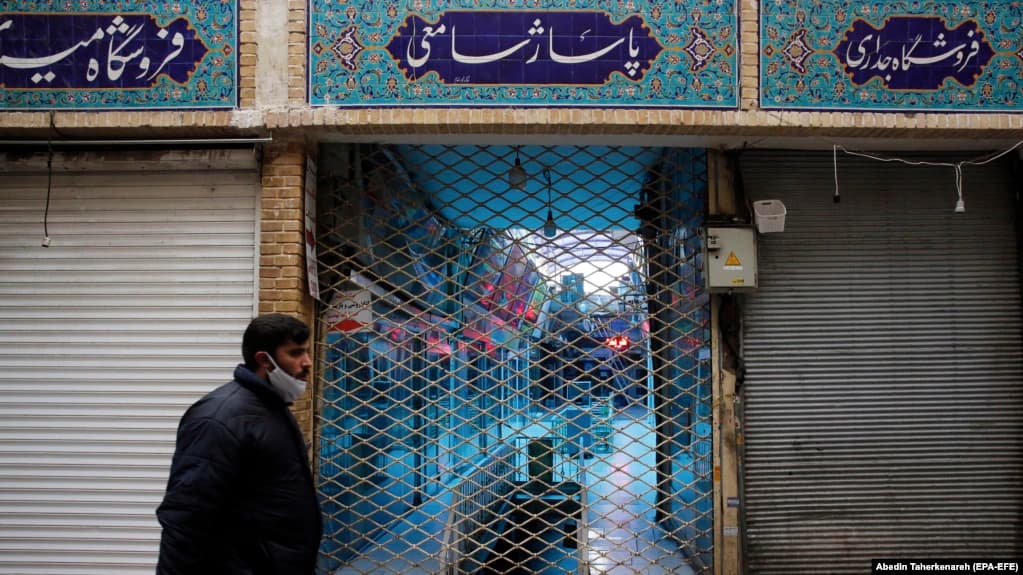
According to the Trade Promotion Organization’s Director-General of the Office of Arab and African Countries Farzad Piltan, Iran’s trade with Africa reached $478 million with a 25 percent drop during the last 11 months compared to the same period last year.
Pointing to the fact that countries like China, Turkey, Brazil, India and Saudi Arabia have made plans to increase their trade with African countries, he said that Iran can export to only 20 out of 54 countries in this continent.
Ghana, Algeria, and Kenya – with respectively $142 million, $109 million, and $41 million – are Iran’s three main trade partners in Africa. Iran’s exports to African countries include steel products, bitumen and asphalt, cement, food products, and aluminum.
According to Piltan, the coronavirus outbreak and the escalation of sanctions in banking transactions and transportation are the main factors for the drop in trade and exports to Africa, adding that Iran’s trade with African countries had reached $800 million in 2013 and 2014.
In the meantime, the Parliament’s Research Center released a report declaring that there were 1 million job losses during the fall of 2020. According to this report, the statistics show that in the fall of 2020, 72 percent of job losses were in the service sector.
The Parliament’s Research Center has blamed the coronavirus outbreak for job losses in the fall, adding that in the spring and summer of 2020, respectively 1.5 million and 1.2 million people lost their jobs.
49 percent of employed people work in the service sector, which comprises half of the country’s entire economy.
